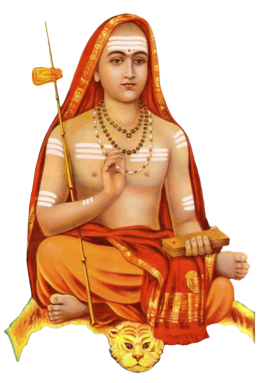यथा निष्प्रभं मन्यते चातिमूढः ।
तथा बद्धवद्भाति यो मूढ-दृष्टेः
स नित्योपलब्धिस्वरूपोऽहमात्मा ॥ १०॥
yathā niṣprabhaṃ manyate cātimūḍhaḥ .
tathā baddhavadbhāti yo mūḍha-dṛṣṭeḥ
sa nityopalabdhisvarūpo’hamātmā .. 10..
English Translation and Notes based on the Bhashya of Sri Sankara
Translated by S. N. Sastri
Due to Avidya, ignorance of one’s real nature, a person identifies himself with the body-mind complex and looks upon himself as a limited being, in bondage. Even when a person thinks of himself as bound and suffering, he is really the ever-blissful Brahman. It is not as if he is initially in bondage and becomes liberated when he realizes that he is in fact Brahman itself. It is only the ignorance of one’s real nature that has to be removed. When what appears to be a snake is realized to be only a rope, it is not as if the snake has gone away and a rope has come in its place. It was only the rope that was always there, but was wrongly seen as a snake. So also, it is not as if there was really bondage earlier, and liberation was attained on the dawn of Self-knowledge.
Hastamalakiyam – Verse 10 – Hastamalaka-10-ghanacchannadṛṣṭir – In Sanskrit with English Transliteration, Translation, Meaning and Bhashya – Commentary by Sankaracharya – Hastamalakiyam-10

